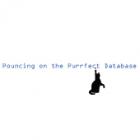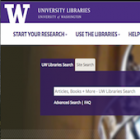
Oregon Humane Society: Standard Operating Procedures
Standard Operating Procedures (SOPs) are vitally important in any organization. They quickly explain what to do in almost any situation that arises. In animal shelters time is of the essence, especially when animals arrive that are neglected or injured, or families are ready to adopt their newest family member. This project consists of creating a new SOPs manual for the Oregon Humane Society for the on-site animal hospital in manual form and in local software. This project will continue through the year to include SOPs manuals for the animal shelter, and the investigations department and also manuals created in local software.









